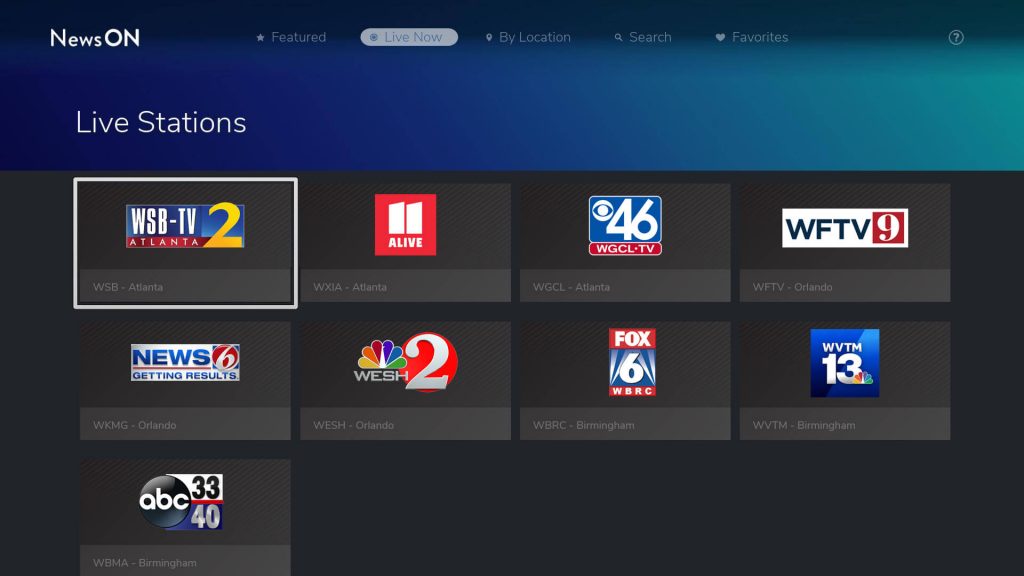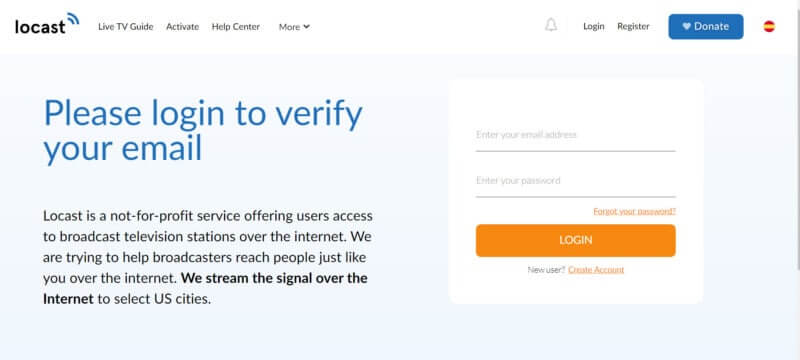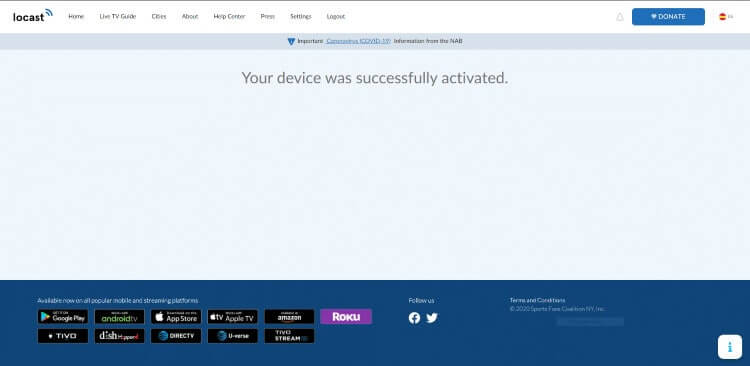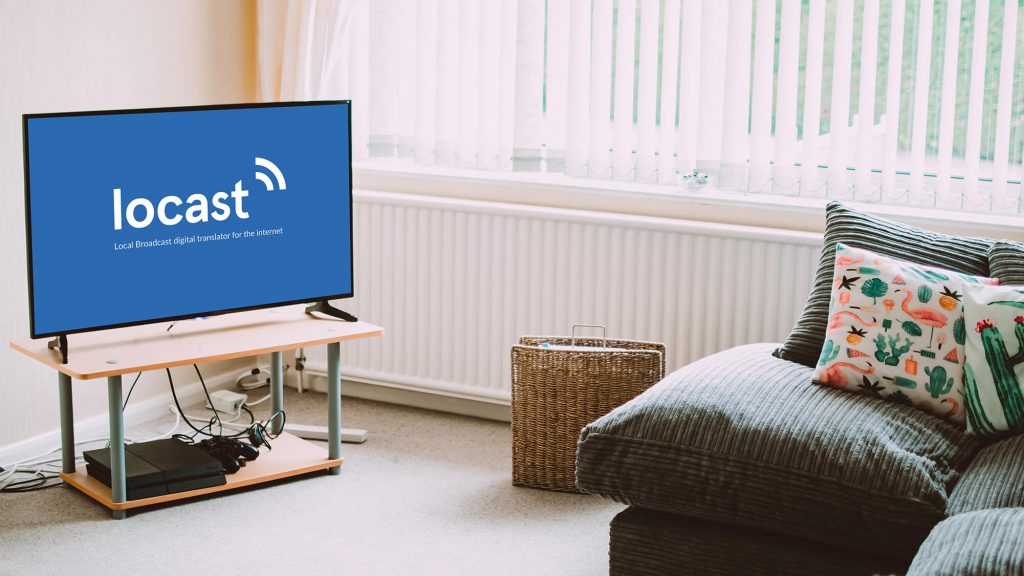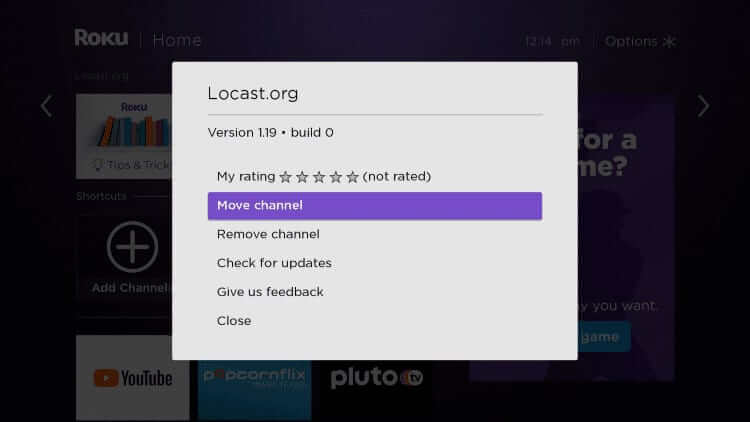After a federal judge ruled against the nonprofit’s right to stream content over the internet, Locast ceased operations. They maintain they intended to operate by the strict letter of the law but were forced to comply with the Court’s ruling. The service started as a precarious investment in copyright law by a Washington lawyer, David Goodfriend. Who designed the platform in direct opposition to broadcasters. In an interview published this year, Mr. Goodfriend said, do you know you’re supposed to get a television for free? Goodfriend noted that while the government gives the four major networks, NBC, CBS, ABC, and Fox, free reign to make use of the airwaves.
About Locast
A live TV streaming service is available and has a service plan with three million registered users. It started in 2018. Locast puts up antennas in select cities, collects over-the-air signals, and then streams them over the internet. Channels available with an antenna are shown on the box: ABC, CBS, FOX, NBC, and more. It has been a solution for people living in areas where an indoor or outdoor antenna cannot pick up local stations. In District Court ruled against the Federal Communications Commission (FCC) ‘s revocation of its authorization to stream video content. On behalf of television broadcasters due to copyright law violation. The judge ruled that it does not violate copyright law because locast does not host any content and merely relays what it receives from the broadcast stations.
How does it work?
You’ll be able to figure out Locast very quickly if you’ve used a live TV streaming service like YouTube TV, Hulu Live, or Sling TV. Locast’s interface is straightforward to use. Follow these steps to start streaming TV:
- Register at Locast.org
- Verify your email address
- Enter an activation code
You can watch Locast on your smartphone, computer, TV, or connected devices like Roku, Amazon Fire TV, Apple TV, or Google Chromecast. Locust has a live guide but no DVR or on-demand sections. However, you can start watching when you select something to watch on the live guide and press the Watch Now button.
Why did it shut down?
Locast was an American nonprofit streaming television service that allowed users to view live streams of over-the-air television stations. Attorney David Goodfriend founded the service under the banner of the Sports Fans Coalition. What happened to locast? However, on December 3, the organization announced that it would shut down operations, and bankruptcy proceedings would begin shortly after that. The decision came after much litigation with media companies such as Sinclair Broadcasting Group and Nexstar Media Group.
They argued that loccast violated copyright laws that forbid retransmission without consent from copyright holders. Locast eventually lost its case in Court. When Judge George King ruled against the organization citing that they are dealing here with someone who took something without permission, it doesn’t matter how noble his intentions may have been.
The court case, however, brought a lot of attention to issues surrounding retransmission licensing and copyright law. Sparking discussions about what constitutes fair use versus infringement in broadcast cases. It has not been decided whether there will be another legal proceeding following Locast’s closure. Still, it is possible, considering there have been ongoing negotiations between broadcasters. And online services about new retransmission licensing policies before this announcement.
Is Locast Legal?
ABC, CBS, FOX, and NBC are suing Locast for allegedly violating copyright laws. As a result of this dispute, Locast filed a counter lawsuit. Unfortunately, the Court dealt Locast a significant setback. Locast is disappointed in the decision and is exploring its next steps after failing to win on its copyright defense. It sent users this explanation via email: As you probably know, the federal district court in the Southern District of New York issued a ruling in the case brought against Locast. The big media companies.
Locast was charging a fee through interrupting programming and then suspending the interruptions when a user made a voluntary contribution. In addition, the Court determined that Locast owes a locast free copyright loss tv service exemption for nonprofits because revenues it collects in this manner exceed the costs of operating the service. For these reasons, the Court granted the Plaintiffs’ motion for a preliminary injunction pending the final resolution of this litigation. The Court’s order will prohibit Locast from continuing to operate its service as contemplated.
Is Locast Free?
Despite operating as a free service, Locast accepts donations from its users. Following a court ruling against Locast, the service suspended all programming interruptions on September 1, 2021. The previous donation request system interrupted live programming every 15 minutes. To stop those interruptions, you could donate $5 per month plus a $0.50 processing fee, so $5.50 total. While programming interruptions have now stopped for all users, Locast accepts donations.
It has also involves in a pending locast lawsuit with the FCC over. Its status as an educational broadcaster is an exemption from licensing requirements. With more than 12 million dollars in legal fees, it’s unclear whether Locast will be able to continue operations if they lose this court case. They need around many new monthly donors to break even on these costs. To date, they’ve only had approximately 30,000 new monthly donors. The future of Locast seems uncertain at best. If we can’t make them profitable through donations alone, we’ll likely see the end of one of America’s few remaining nonprofit media services.
Is Locast Reliable?
Since Locast launched in my city in mid-2020, I’ve watched a lot of content on it and haven’t had any issues. It doesn’t always look the sharpest, but it doesn’t stall out when streaming. I noticed a pop-up warning about streaming issues when many people were using the service. lo cast informed me that the service improved to meet demand. This streaming service is very reliable for a free or $5 monthly service.
If there is an outage, I can always opt for the paid service. But some users are skeptical because this court case could allow other companies to start offering services like Locast. There will not be another court case like this because the legislation was changed so that only nonprofits could stream live TV. So, even if something happens with locast court ruling Case II, another company won’t be able to offer this service without being a nonprofit organization.
Watch local channels with an antenna
Here, the only cost is an antenna to connect your television to an over-the-air signal. Antennas have become more affordable in recent years, depending on the model you get. An antenna can better install outside than inside, and higher is better. If possible, you should avoid tall trees, mountains, etc. Outdoor antennas typically have more range than indoor antennas and less interference. One also must point the antenna in the direction of the broadcast to optimize reception. So, if your local broadcasters are coming from the east, you will want to point your antenna to the east.
If they are coming from the west, tell it to the west, and so on. One site is called Antennas Direct. They will tell you where the best broadcast signal is and sell you an antenna that will improve reception. There are some limitations, though. For example, if you only have one antenna connected to your TV. You can only watch local channels, and you’ll be limited to that locast tv lawsuit and no other devices. Also, there are potential fixes for this (read below). This boils down to that this depends on various factors, so it may vary based on where you live, what type of residence you’re in, etc.
OTA antenna and a streaming box
If you’re more committed to using an OTA antenna to watch your local channels. It would be beneficial to check out over-the-air streaming boxes. An antenna can’t plug directly into your television, so you’ll hit it into a device with multiple tuners and networking capability. One solution would be to install an antenna on your TV, phone, or tablet and then watch your local channels on all three devices. This would require purchasing more hardware than simply using an antenna. Though this can seem expensive, it’s a one-time fee.
Final Thoughts
To enjoy a lifetime of free over-the-air TV, you’ll need an indoor or outdoor antenna. However, an antenna may not work in all parts of the country — and that’s where Locast comes in. It makes a lot of sense for people who use Sling TV, which does not have all the local channels like YouTube TV and Hulu Live. However, given the legal challenges, I fear Locast may not survive. In locast court case, argued that it had no commercial purpose because it did not charge users anything to watch live television stations. On the other hand, opponents argued that this was false advertising. Because any commercial enterprise could charge for anything if they provided a service worth more than $1 per month (which would be required to comply with current regulations).


